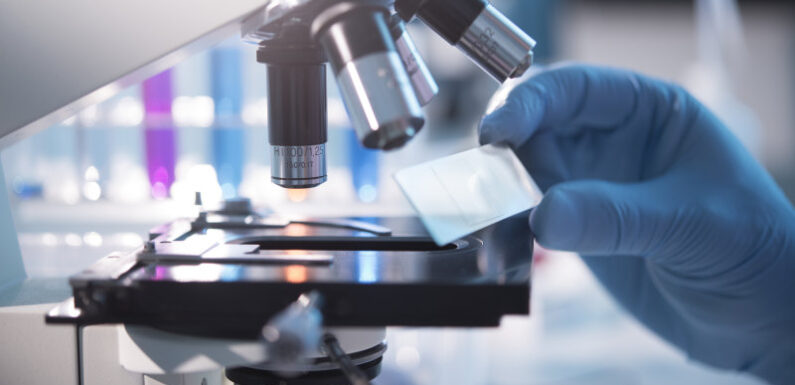
Save articles for later
Add articles to your saved list and come back to them any time.
Results from some medical tests, including cancer diagnoses, are being delayed by up to three weeks due to a nationwide shortage of pathologists.
The test delays could also be holding up diagnoses for other serious conditions such Crohn’s disease and ulcerative colitis, the Royal College of Pathologists of Australasia has warned.
The Royal College of Pathologists of Australasia is warning of an acute shortage of pathologists.Credit: iStock
“It could be the cancer you didn’t suspect,” college president and associate professor Trishe Leong said.
“There’s always the chance of something unexpected showing up in a biopsy and if that is not tended to as soon as possible, it can have an impact on patient care.”
Leong said there was also a backlog of pathological examinations of placentas, which are used to detect genetic conditions and shed light on complex births.
The college is calling for state and federal governments to fund more training positions, with the most recent estimates showing there will be a shortage of up to 92 pathologists across Australia by 2030.
While biopsies flagged as urgent by pathologists are turned around quickly, those marked as non-urgent are plagued with delays.
Leong said these tests used to take around two to three days to turn around, but were now taking two to three weeks.
Leong said the workload for pathologists had intensified since the pandemic, due to people delaying medical checks and state government blitzes on planned surgeries.
“We’ve got shortages across the board and it only seems to be getting worse,” Leong said.
A nationwide shortage of pathologists has led to weeks-long delays in medical test results.Credit: Joe Armao
Royal Australian College of General Practitioners national vice-president Dr Bruce Willett said it was taking more than two weeks for some biopsy results to be sent to him after his patients had been hospitalised. He said these results had previously been turned around in a handful of days.
“If you’re worried about a cancer diagnosis, it can be stressful,” he said.
He said the issue seemed to be confined to biopsies ordered in public hospitals rather than blood tests, which he said were still being speedily turned around.
The work of a pathologist can be incredibly labour-intensive, with the medical specialists having to look at 60 to 70 slides to diagnose some types of cancer.
Blood test results are still being speedily turned around.Credit: Reuters
It is also becoming an increasingly complex profession, with pathologists required to write highly detailed reports for cancers so that patients can access personalised medical treatments.
It takes around 13 years of studying and training to become a pathologist.
Dean Whiting, the chief executive of Pathology Technology Australia, which represents manufacturers of tests and technologies, believes technology has the potential to ease the workload of pathologists, allowing them to focus on their most important tasks.
“It will take so long to train new laboratory people and pathologists: the adoption of new technology and digital enablers is a better way of going forward,” he said.
Australian Pathology chief executive Liesel Wett called for an increase in the Medicare rebate for pathology services, saying it had been frozen since 1995.
She said there was an acute shortage of microbiologists, chemcial pathologists, genetic pathologists and histopathologists, who make cancer diagnoses. But Wett said she was not aware of the situation having an impact on patient results or turnaround times “to date”.
A Victorian government spokeswoman said it had recruited more than 7000 healthcare workers, including pathologists, as part of its $12 billion pandemic repair plan.
She said the latest round of funding through the Victorian Medical Specialist Training Program was supporting eight public pathology training positions.
A recent Royal College of Pathologists of Australasia review, commissioned by the Victorian government, recommended increasing the number of trainee pathologists, particularly in the areas of anatomical, genetics, hematology and immunopathology.
A NSW Health Pathology spokesperson said recruiting anatomical, forensic, chemical, forensic and genetic pathologists was a challenge in Australia, and around the world.
“These workforce challenges will at times have an impact on services, especially for regional areas of NSW,” she said.
She said results were prioritised according to clinical need and turnaround times varied depending on complexity.
She said NSW Health Pathology employed around 500 senior medical officers and trainee pathologists in pathology and forensic services.
Get the day’s breaking news, entertainment ideas and a long read to enjoy. Sign up to receive our Evening Edition newsletter.
Most Viewed in National
From our partners
Source: Read Full Article


